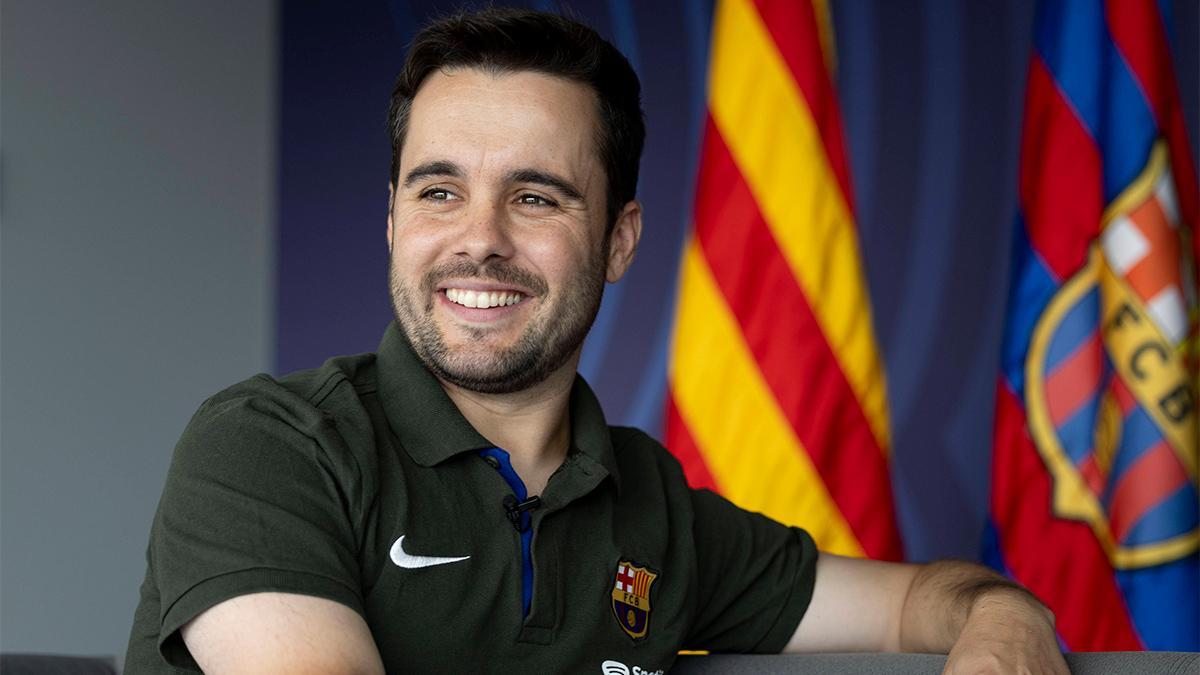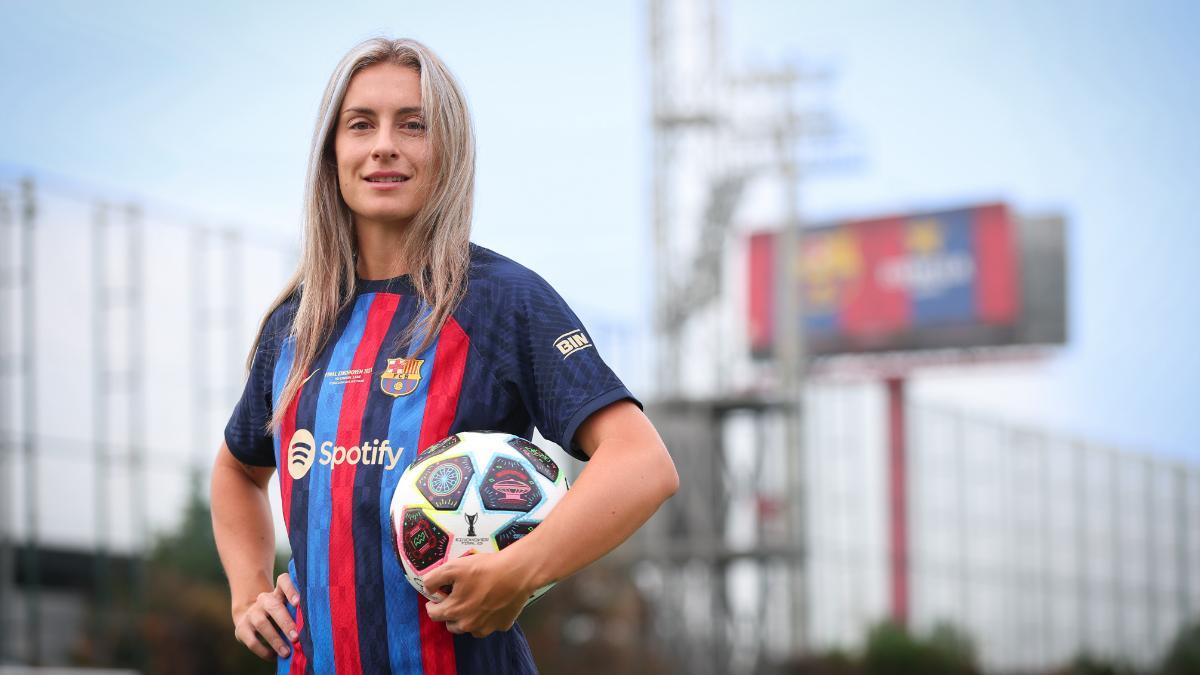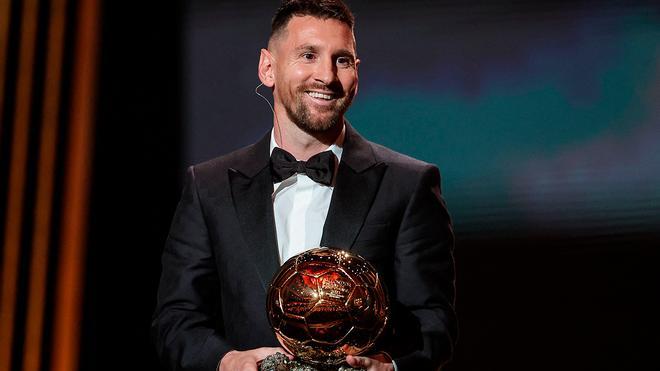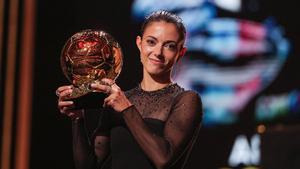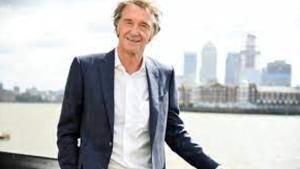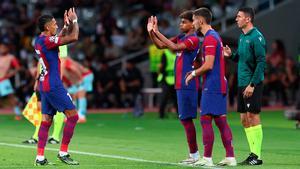Exclusive Jonatan Giráldez interview: Barça coach on Alexia as a No.9, psychologists & always improving
The Barça Femení coach spoke to Sport's Maria Tikas about a range of topics
Jonatan Giráldez (Vigo, 1991) lights up when I show him a photo of himself with his wife, Olaia, and their baby, Cíes, wearing the gold medal on the grass in Eindhoven after winning the Champions League final. "Oh, what memories... During my last visit to Galicia, two weeks ago, I asked my grandfather if he could paint this photo for us because he's a painter. I didn't know you had it ready..."
It was undoubtedly "the best day of my life, professionally speaking, because of what it meant." His son was only eight days old, and "having both my partner and him there, and winning the match as we did, with the comeback, was super special."
How is a father similar to a coach?
In maturity and patience. I used to consider myself a somewhat more reactive person when certain things happened. I've always had that intensity for everything, even speaking. But when you become a coach, you have to balance what the team needs with what you need. That's what's most similar to having a child, who, when born, has special needs different from your own. And you have to act accordingly.
Those who know you say you are a competitive, nonconformist, and generous person. Do you agree?
I don't know who told you that [laughs], but yes. I like competition as a way of life. Even when I try to disconnect, I have the need to compete in something else, whether it's at home with my partner, with staff members, or with the players. I like to have challenges in life, the possibility of beating the person in front of me. And that's one of the reasons I believe I'm the coach of Barça today, because of this competitive character, the intention to want to improve every day, to want to win, to want to give your best... It's my way of life.
You've held various roles in coaching staff until becoming the head coach. Have you experienced the solitude of a coach that many talk about?
Yes, being a coach is completely different. In the part related to sports, which is where I feel most comfortable, more secure, and where I believe I can contribute the most, there is harmony because everyone's daily actions are geared towards improving our style of play and helping the players. But it's true that fifty percent of my work involves management. And that aspect is hard to understand if you haven't been in that situation.
Especially at Barça...
The higher the level of demand, due to the media attention, the quality of the players, the stress, and the daily competitive tension, the harder it is to put yourself in the coach's shoes. Because after my day ends, following training and preparing for the next day, I have meetings to organise trips, interviews, conversations with players... That part of being a coach is the one that people find most difficult to see and understand.
"The higher the level of demand, the more difficult it is to put yourself in the coach's shoes"
Jonatan Giráldez
The role of a psychologist is very important in your daily life.
I like having someone who can tell me how they perceive what I'm explaining, how I express myself. When I'm having a conversation with you, I have to empathise and understand how you perceive the information I'm giving you. It's crucial. One of the reasons I'm a coach is to try to improve, to try to win. To do that, I have to help the players. So, I may be feeling something during my explanation, my approach to the group, but I don't know how the other party is receiving it. And they provide me with their assessment of how my intervention went, how they saw it, and whether it achieved what I had in mind.
You lead a locker room of footballers who cannot or should not be just footballers. How do you manage this, as a coach, to minimise its impact on the field?
By focusing on everything that depends on you, on what you can do on a daily basis to perform at the highest level. It's an exercise in awareness, will, and effort. The players have done it, and so has the rest of the team working day in and day out. You can't give 100% when you're preoccupied with other things, so it's important that when you have a particular conflict, you find a way to disconnect and rest. Whether it's going for a walk, meditating, exercising... whatever helps you relax. The next day, when you wake up, you can give your best in training, stay focused solely on the task at hand, just like in the game.
You are nominated for 'The Best' award. Coaches are often blamed when things go wrong and can be forgotten when things go well. What does this recognition mean to you?
Yes, that tends to happen [laughs]. Here, everyone does things for the team, but it's exciting, of course, to be nominated alongside so many well-known figures in world football. I think it speaks highly of everything we do day in and day out, everything the staff does.
We have a high-level team, players who are the best in the world, many of them in their positions. Players who have become what they are partly due to their will, their effort, but also with the help of those of us who work day in and day out to allow them to focus solely on playing football, giving their best, and from there, winning. It's evident that you achieve these things only when the team wins. So my focus remains the same, to keep winning as a team and hopefully win these awards someday.
It's an award that values your season. I have selected three key moments; let's see how important they were to you. Starting with this photo. Do you remember that moment?

El 'staff' del Barça celebra la goleada en Valdebebas
| Twitter Jonatan GiráldezIn Madrid, the 4-0, right? It was a hugely important day. I remember it was a hectic week, where I had to act as a thermostat, balance and refocus on what really mattered, which was the game, and stick to the plan meticulously, ensuring that all players played for the team. And I think we played one of the best games of the season. It wasn't a spectacle, but it was a game from start to finish with clear control by Barça, with very high-level game and emotional management.
The second one, the elimination from the Copa de la Reina, not so much for the match itself but for how the team bounced back after such a blow.
It was tough. We won the match 9-0, and when I was told that there had been a problem with Geyse's lineup, I couldn't believe it. The person in charge of these things assumed that everything was fine. It was talked about a lot at the time. We had to refocus more than ever because we had a match in three or four days. And that bad news made us stronger.
And the third one, the Champions League final. You were trailing 0-2 at halftime, and suddenly everything changed...
It is a very sensitive moment, especially because of how the goals happened in the first half. We had opportunities and we didn't score. It's the most important match of the season, and you can think you have little time. We did a very deep and powerful exercise, becoming aware of all the situations we went through during the season. And there was one that was fundamental for me, the semifinal against Real Madrid in the Supercopa, because we played with one player less for an hour. And still, we won. That day, emotionally, marked a turning point to know that we could be capable of anything. And Eindhoven was the perfect day to demonstrate it.
"The Super Cup semi-final against Madrid was a turning point to know that we could do anything. And in Eindhoven it was the perfect day to prove it..."
Jonatan Giráldez
What was the message?
It was focused on us looking each other in the face, all the people who were there, including the staff. Creating a favourable energy to believe that we could turn things around. There were small nuances at the tactical level that we could improve and had to put into practice. But that we should believe. Remembering all the moments we had, from the uncertainty with the Copa, the red czard in the Supercopa, and everything in between. That the journey had been worthwhile, but we still had forty-five minutes to come back. That it was a matter of scoring a goal for the favourable dynamic to go in the right direction. And, thankfully, the victory tasted much better. I am very happy and proud of what we did in that match and the mental maturity that the entire team showed.
What is your assessment of the transfer market? Last year, there were not enough numbers, and now there are three vacant numbers...
Last year, we had twenty-seven players training, of which four were recovering from injuries, so twenty-three in total. This year, we have twenty-six. The effective number for day-to-day training is higher this year proportionally because we don't have long-term injuries except for Frido [Rolfö]. The only thing we changed is the players who are in the first-team dynamics. Last year, it was Maria Pérez and Vicky [López], and this year, in addition to Vicky, we have Lucía Corrales, Martina [Fernández], and Giulia Dragoni. They are potential first-team players, but we need them to get playing time with the reserves on days when they can't with us.
And two necessary signings.
I am very happy with the addition of both players, Ona [Batlle] and Esmee [Brugts]. They have adapted very well. Both are versatile players who had a great World Cup. We kept a close eye on them to avoid paying transfer fees, which could also minimise expenses. And having three open spots... The season is very long, and we don't know what might happen in the winter transfer window, but we are open to anything that can benefit the team.
"The season is very long, we don't know what can happen in the winter transfer window, but we are open to anything that can be done to benefit the team"
Jonatan Giráldez
Are you satisfied with the squad then?
The squad is more than sufficient. I am happy because it has been a challenging year to strike a balance between sports and economics. We had to juggle with financial fair play, especially from the sports management perspective, but I believe we have assembled a highly competitive team with future potential and the ability to contend for everything.
Do you see a future for Alexia in the number nine position, or is it an experiment?
Yes! Since I arrived at Barcelona in 2019, I have been observing the team's evolution and hers. She is a player with the ability to play with her back to goal, and her final pass is excellent, in addition to her goal-scoring ability. It's not so much about the number we assign to her or where we position her but the role we give her. For me, the key is to surround her with elements that allow her to participate in areas where I believe she should be involved, like in the central of midfield and with her back to the midfielders, and she can also have an impact in the final third. I deeply believe she can do it because I have knowledge of what she can do, I know what she does in day-to-day training, I am familiar with the opponents, and I have more information than others who are not involved. And it's a consensus.
That's important...
Very much so. Besides inviting and persuading her to understand how she can help us from this position, it's important that the player sees it. Alexia is very receptive. Moreover, the season is very long, and unfortunately, there are injuries, so we may need resources in the coming months, and she can start in the central midfield position or as a number nine from the beginning. You never know. In the Champions League final, the forward who played as a number nine in the first half was more of a central midfielder profile because we played with Salma out wide coming inside.
...
This provides you with a lot of variability in terms of positions, making you less predictable to surprise the opponent. At the start of the season, we aimed to have more resources and make sure the players can shine and perform in different positions because it aligns with my coaching style and philosophy, and it's a challenge. She's had a lot of chance; it's true that she hasn't taken them yet, but it's just a matter of time, practice, training, video analysis, and truly believing that she can contribute a lot in that role.
Alexia is one of the players whose contract expires this season, along with several key members of the squad and yourself. How is the renewal process going, especially after Markel [Zubizarreta]'s departure?
It's something that depends on the people above me. I know the club is working to bring in someone who can manage everything related to planning. What Markel created from scratch in almost nine seasons was wonderful. I am very grateful to him because he was the one who gave me the opportunity to be a coach when no one expected it, and when no one knew me. He took a chance, and given the team's performance, it didn't turn out too badly for him.
And now?
Now it's the club's responsibility to take a step forward to strengthen something that was working and to agree on which players should continue with this project. I understand that in the coming days or weeks, we will have a clearer picture of which players, as you mentioned, are part of the spine and, of course, my case, as my contract also expires on June 30.
"It is now the club's responsibility to take a step forward to strengthen something that was working"
How do you improve on the previous season?
If we win one more title, we will have improved. Being in this team, we have to aim for that. Although we know that winning is always very complicated. We have a squad with great depth. We want to win every match because we want to win every title. But yes, it's a challenge because there isn't much room for improvement. I focus on how I can help the team arrive in good shape for the critical stage of the season, which is when you start to put things on the line. I think my first year was impressive in terms of play and results from the start, but we struggled to get to the end.
And in the last one?
We were much better, we've been progressively improving our version of ourselves in terms of training loads. And we finished on a very high level of form. The Spanish national team won the World Cup and there was a large representation of Barça players who were in good form. This year the idea is similar, to help the players to recover well from everything they've been through, which has been very tiring, so that they can give their best when it really matters. And, in the meantime, to keep competing and winning to be at the top, so that people like what they see so that they continue to fall in love.
